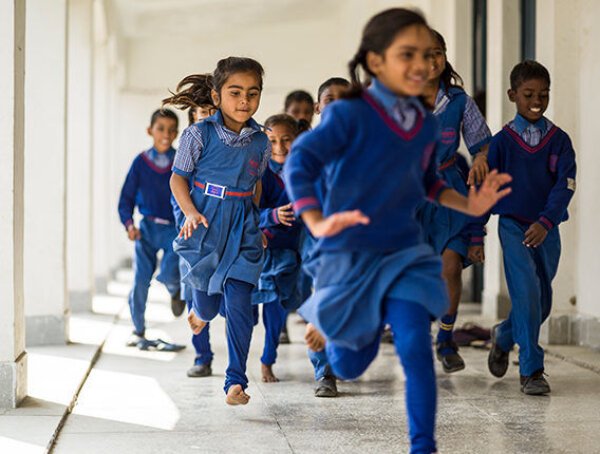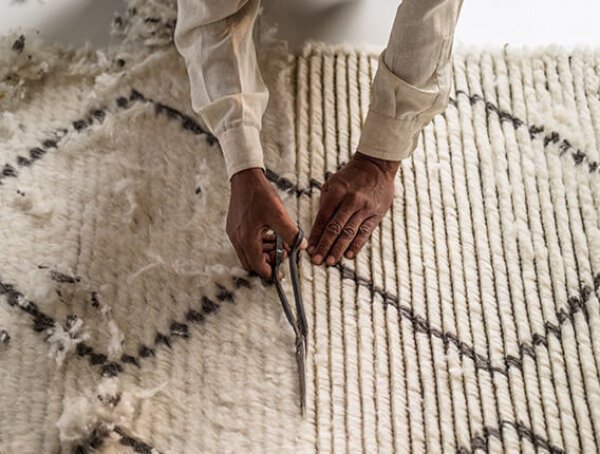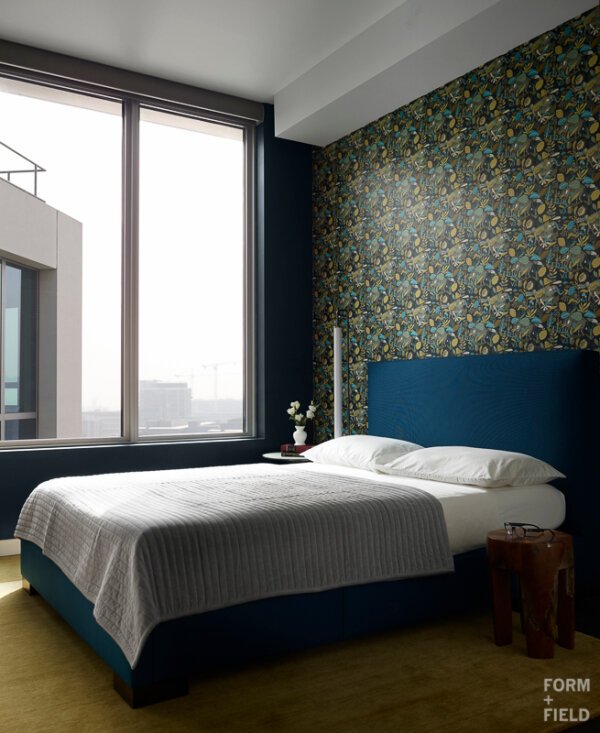ETHICAL LABOR CONDITIONS
ETHICAL LABOR CONDITIONS
For the final post in our Sustainability + Interiors series, let’s talk about the human element: the people whose hands and labor go into creating the items we incorporate into our living spaces.
Unfortunately, many household items are not made under humane circumstances. This can include insufficient pay, long hours, exposure to toxic materials, poor workroom ventilation, little to no support during maternity, physical abuse, and child labor.
The rug and textile industries in particular are notorious for conditions like these. So what can we do?
HOW TO FIND & SUPPORT FAIR LABOR PRACTICES
It is difficult to investigate the working conditions of every company, supplier, and workroom with products on the market, especially when so many items are manufactured overseas. Instead, as with environmental sustainability and VOCs, we rely upon the organizations who vet suppliers and award them with a certification when certain standards are met.
FAIR LABOR IN THE TEXTILE INDUSTRY
In the textile industry, you can look for these certifications that monitor and approve fair labor practices:
Fair Trade
World Fair Trade Organization (WFTO)
Global Organic Textile Standard (GOTS)
Better Cotton Initiative (BCI)
You can find more accreditations for the textile industry here.
FAIR LABOR IN THE RUG INDUSTRY
In the rug industry, the Goodweave Certification is the one we trust and support most for identifying suppliers with fair labor practices.
(source)
Goodweave is a nonprofit organization dedicated to eliminating illegal child labor, bonded labor, and unsafe/unfair working conditions in India, Nepal, and Pakistan. To verify that these standards are being met and maintained, Goodweave routinely inspects applicants’ workspaces and any locations or homes where they outsource production.
Once a manufacturer is approved, the Goodweave label signifies to buyers that the rug was made without child labor, forced labor, or inhumane conditions.
(source)
TRUSTED FAIR LABOR RUG SUPPLIERS
There are several rug makers under the Goodweave label who are doing even more to support weavers and their access to fundamental resources like child care and education. These are a couple of our favorite vendors who we closely work with on many of our projects:
New Moon, who is also one of the founding members of Goodweave, employs a majority of Nepalese women to empower them and help them support their families. New Moon also offers on-site day care centers for employees’ children and assists with financial support when the children come of school age.
New Moon rugs, like the one in this Atherton Estate entry parlor, are hand-woven from high quality Tibetan wool and use no harsh chemicals.
Another company making a positive impact on fair labor conditions and education in India, Nepal, and Pakistan is Armadillo & Co. They, too, have the Goodweave label and are highly active in supporting the weavers, their local children, and the surrounding village community.
Armadillo & Co. rugs, like this one in the Mission Bay Penthouse guest room, are made from natural and recycled sustainable fibers.
OTHER WAYS TO VERIFY FAIR LABOR
For rugs, you can find more Goodweave certified suppliers here.
For other furnishings, the Forest Stewardship Council (FSC), which is mainly known for ensuring sustainable wood harvesting practices, also verifies that local communities are respected and workers properly paid. You can find FSC-certified products here.
There are also many boutique custom furnishing workrooms all over the U.S. that make window treatments, upholstered furniture, slipcovers, pillows, and more. These workshops are almost guaranteed to have fair labor practices given that they personally make the items by hand in the U.S. You can ask your workrooms about the origins of the fabric (or order your own) to ensure it was ethically produced.
We hope these resources have shed some positive light on a serious issue that will hopefully decrease as our awareness and social conscience increases.
By choosing products from companies who prioritize fair labor and value their workers, we can do our part to help support communities, families, and people around the world — and inspire others to follow suit.
References:
https://www.architecturaldigest.com/story/what-you-need-to-know-about-sourcing-ethical-furniture
https://www.newmoonrugs.com/about-us/new-moon-nepal/
https://goodweave.org/about/goodweave-label/
https://usa.armadillo-co.com/about-armadillo-and-co/
https://globaledge.msu.edu/blog/post/54484/working-conditions-in-the-textile-indust
https://www.apparelentrepreneurship.com/your-guide-to-sustainability/







